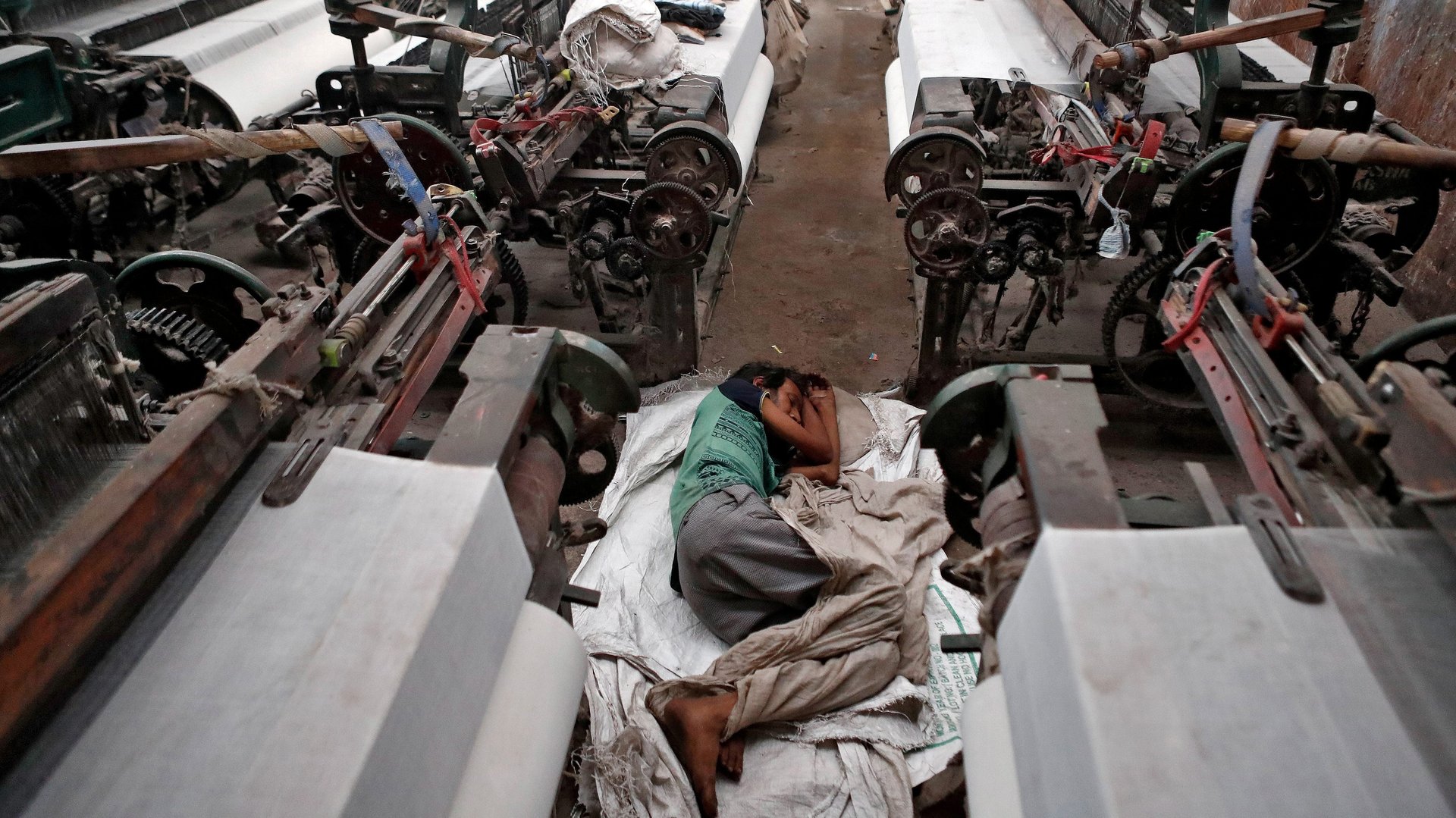Indian garment workers are caught between Covid-19 and lost wages
Workers in Bengaluru’s garment industry are facing a dire situation.


Workers in Bengaluru’s garment industry are facing a dire situation.
The city is home to one of the biggest clusters of garment manufacturers in India, employing some 500,000 workers. A large share are women, including many migrants from nearby villages and other areas who depend on the low wages they earn to feed themselves and their families. They can scarcely afford any disruption to their income, as occurred last April when factories temporarily shut due to the pandemic and numerous workers lost their jobs. Now Bengaluru is entering a new lockdown to halt its surging number of Covid-19 infections, pausing its garment industry and leaving workers facing a possible crisis.
The rise in daily infections in Bengaluru is second only to Delhi in India, prompting the government to order a two-week shut down to curb the virus’ spread. While it exempted some manufacturing sectors from the order, the garment industry was not among them. The government “is aware of the plight of garment workers,” a local official told reporters. “But, as they gather in large numbers in limited space this sector is not allowed to continue the operations.”
Despite the risk of getting sick, many workers would prefer to see factories continue running, according to IndustriALL, a global federation of trade unions, fearing the effect the lockdown will have on their jobs and wages. Local media also report that the Garment and Textile Workers Union (GATWU) as well as the Bengaluru Chamber of Industry and Commerce and the Karnataka Employers’ Association are asking the government to allow factories to run with up to 50% of their usual staff, which would allow for more distancing of workers.
For some, the concern is also about keeping India’s economy going. Bengaluru is a critical hub in India’s garment business, which exported $17 billion in clothing in 2019 based on World Trade Organization data, ranking it sixth among all nations. ( It’s second in textile exports). Factories in other important garment centers such as Chennai are still operating but also see lockdown as a growing possibility.
Garment workers’ pandemic struggles
In Bengaluru as in other garment hubs around Asia, work in clothing factories often pays low wages, leaving workers with little financial security. During the pandemic, many have suffered as factories slashed jobs and work hours to stay in business while the western companies they often rely on cut orders amid plunging demand for clothes. In countries including India, where the textile and apparel industries are together the second-largest employer after agriculture, some workers have battled hunger and taken on debt to survive.
While garment factories in Bengaluru had finally started to see orders picking up, the new lockdown is sparking fears of factories shedding jobs and losing business as clients in the US and Europe divert orders elsewhere.
It’s unclear if the government will offer any assistance. So far, it has not announced any support of garment workers, IndustriALL said. GATWU, one of IndustriALL’s local affiliates, has written to the labor department asking for more information and demanded workers receive wages during the lockdown, it said.
Aid hasn’t always been reliable. A survey last year of garment workers in Karnataka, the southern Indian state where Bengaluru is located, found most received no support from either their employers or the local government. Many informal workers who do tasks such as embroidery or beading in their homes can also be overlooked by such programs.
While the crisis in India continues to worsen, countries around the world have pledged to help. Whether garment workers will get the help they need remains to be seen.